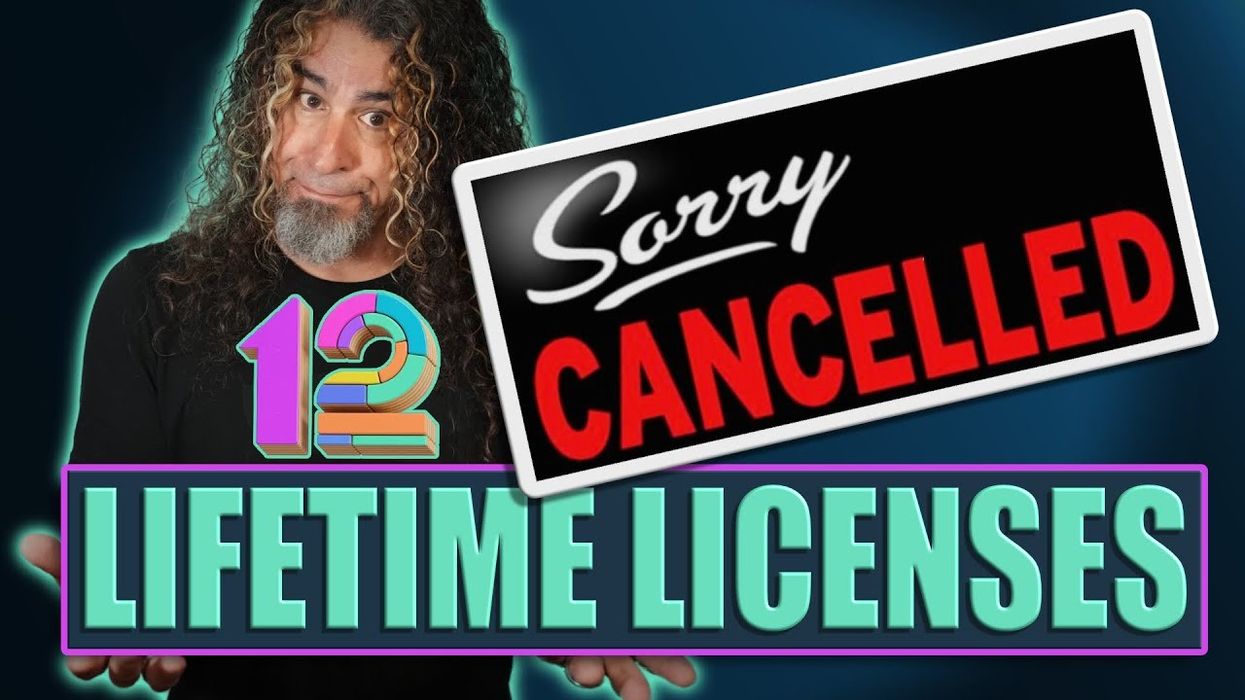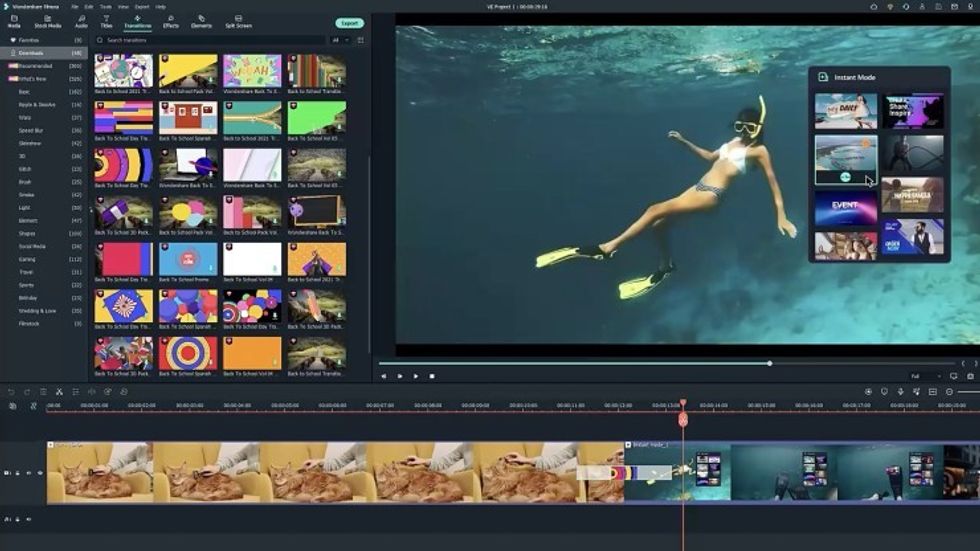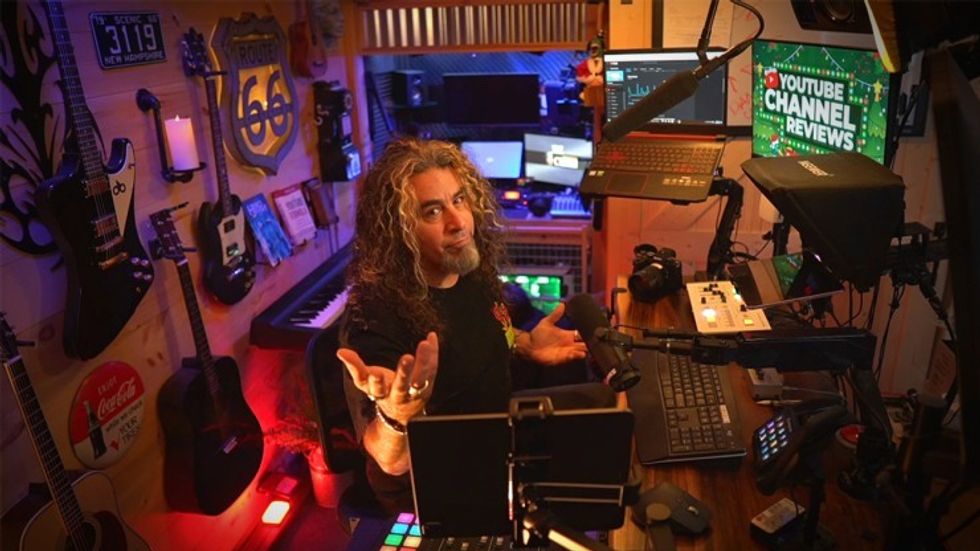The Changing Rules of Lifetime Licenses—What You Need to Know to Protect Yourself
When you buy a lifetime license for an app, including updates and upgrades, it should stay that way, right?

Quite a lot of software has gone the subscription route over the years, including those related to production, photography, and music. The consensus from the companies that make these programs is that there is a need for continued revenue to further support the software. On paper, that makes perfect sense.
But what happens when you buy a supposed "lifetime subscription," and the developer changes the rules to charge you again?
One popular YouTuber found out.
Filmora And its Lifetime License
YouTuber Daniel Batal, who offers solid advice on growing YouTube channels, software tutorials, and more, had a short series of videos where he discussed the decision Wondershare made to charge creatives who bought a lifetime license when Filmora Video App 12 debuted in late 2022 after they had moved to a subscription model.
Batal tells viewers how he was a regular user of Filmora and loved the app and features, saying he was their biggest fan. So much so that he became their first paid brand ambassador and recommended the application to everyone he could. His YouTube channel has over 100 videos with the Filmora tutorials he created. Batal even purchased three-lifetime Filmora licenses for his business, enjoying free major updates for life, starting with Filmora Version 9.

At the end of 2022, Batal downloaded the major update to Filmora, Version 12, and opened the NLE app. It prompted him to purchase a new subscription-based license. He figured that this pop-up happened because he wasn't logged into his profile. After logging in, he still got the prompt. Batal ignored it and edited a video, then hit export. Filmora said he needed to purchase a new license to remove a watermark.
So what was going on?
After doing some research, Batal learned that Wondershare had essentially changed the rules of the Filmora lifetime license. Starting with Version 12, those lifetime licensees would have to pay a new annual subscription fee. There's a lot of legal jargon to contend with, but it was clear there was a change.
For Batal, it wasn't about the new fee, as it wasn't expensive. It was about a company not only changing the rules but actually going back to the original terms and conditions and changing the wording. Batal retrieved the original promise of a lifetime license through the Wayback Machine.
Before making the series of videos of what happened, Batal tried reaching out to Wondershare in several different ways to learn why they made the change and let them know how he and many others felt. They ignored him. So he created his first video and very reasonably explained the situation:
Following the release, which has over a million views, Batal made a second video to explain how Wondershare changed the language from upgrades to updates. The company also commented about the end user agreement from Filmora Ver. 9, but many users had a lifetime license before that. The company even started saying it was all a misunderstanding. Finally, they did respond to Batal through an email, including an offer to be a paid brand ambassador again.
And that's when it got ugly. Batal opened his YouTube dashboard and was greeted by a copyright strike and a "DMCA takedown." If he were to receive three of them, his channel would be deleted. It's an understatement to say this would hurt him financially. And who issued it? It was Wondershare, and it was an authorized tutorial video he created. Batal created a video explaining what happened, leading the likes of Linus Sebastian of Linus Tech Tips to even talk about the saga.
The End of The Story
There is a happy ending to this tale, albeit with an initial warning from Wondershare. After saying everything was a misunderstanding and pointing to the revised end-user agreement, the company publicly stated that they would honor those who bought the lifetime licenses before the change to a perpetual license.
But the warning they issued was they would seek legal action against those who spread "false accusations out of malicious intent." To add insult to injury, they did this in the same statement they issued to make peace with their lifetime subscribers.
The good news is Batal very recently said that the copyright strike and DMCA takedown against his YouTube channel never went through, and it seems everything is back to normal. It doesn't appear that Wondershare will seek legal action against him or anyone else.

A Story Not About The Subscription Model
As Batal pointed out, it's not about a software company moving to a SAAS model. It is about quietly changing the rules to leave those who bought a lifetime license out in the cold.
One recent case involved SiriusXM revoking their lifetime subscriptions and met with a lawsuit by angry customers. They lost that case back in 2021.
Understandably, a software developer would want to move to a SAAS model to continue developing their app, and new customers can subscribe. Especially with how creatives always request additional features to be added. Batal and others made it clear that if a developer once offered a lifetime license, please continue honoring it for those who purchased it.
What do you think about how all this unfolded? Let us know in the comments!
Check out weekly specials, deals, and rebates: Pro Video Gear, Pro Audio Gear, Lighting
Source: Daniel Batal











